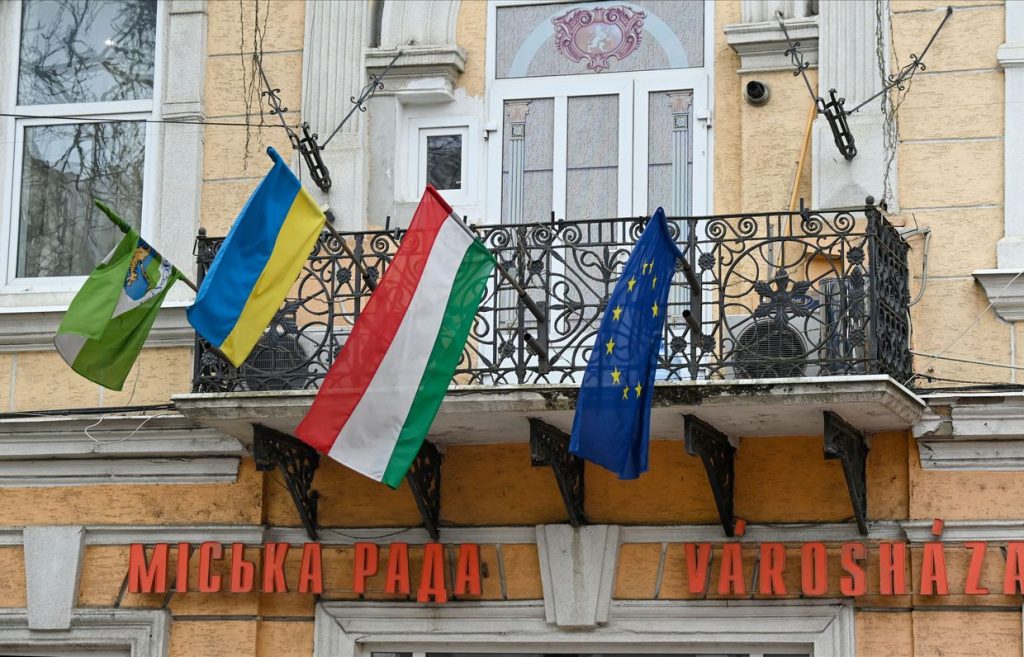President Zelensky of Ukraine met with Hungarian President Tamas Sulyok during the Three Seas Summit in Vilnius, where he extended an invitation for Hungary to join the Global Peace Summit in Switzerland and participate in the G7 Vilnius Declaration of Support for Ukraine. Zelensky also suggested initiating a bilateral security agreement between the two countries. The Three Seas Initiative (TSI) includes 13 EU member states and serves as a platform for addressing economic and infrastructure concerns. In 2022, Ukraine was granted partner-participant status within the TSI and became an associate member the following year, gaining access to all resources and mechanisms within the initiative.
Hungarian Foreign Minister Peter Szijjarto expressed Hungary’s interest in ending the Russia-Ukraine war and initiating peace talks, stating that it is in Hungary’s fundamental interest. However, Szijjarto mentioned that Hungary will continue to reject participation in political or financial initiatives involving weapons aid to Ukraine, as it could create a risk of escalation. Tamas Sulyok became Hungary’s President in March, following the resignation of his predecessor, Katalin Novak. The discussions between Ukraine and Hungary during the summit indicate a potential for increased cooperation and dialogue between the two countries.
President Zelensky arrived in Lithuania for the Three Seas Summit and engaged in talks with the leaders of partner countries. The summit provided an opportunity for discussions on economic and infrastructure concerns among the 13 EU member states involved in the TSI. Zelensky’s meetings with various leaders, including the Hungarian President, highlighted the importance of regional cooperation and solidarity in addressing pressing issues such as the conflict between Russia and Ukraine. The invitation for Hungary to join the Global Peace Summit and participate in the G7 Vilnius Declaration underscores the commitment to finding peaceful resolutions to ongoing conflicts.
The involvement of Ukraine in the Three Seas Initiative as a partner-participant and later as an associate member demonstrates the country’s commitment to regional cooperation and economic development. By engaging with other EU member states through the TSI, Ukraine gains access to resources and mechanisms that can support its growth and stability. The discussions between Ukraine and Hungary during the summit indicate a willingness to explore avenues for collaboration, especially in the context of the ongoing conflict between Russia and Ukraine. The proposed bilateral security agreement between Ukraine and Hungary could further enhance security cooperation in the region.
The stance of Hungary on the Russia-Ukraine war and its reluctance to participate in initiatives involving weapons aid to Ukraine reflect the complexities of relations within the region. While Hungary emphasizes the importance of peace talks and ending the conflict, it also seeks to avoid actions that could potentially escalate the situation. The discussions between Hungary and Ukraine during the summit highlight the need for dialogue and diplomacy in addressing conflicts and finding peaceful solutions. The invitation for Hungary to participate in the Global Peace Summit and the G7 Vilnius Declaration could serve as a platform for further discussions and cooperation on regional security and stability.
Overall, the discussions and interactions between Ukraine and Hungary during the Three Seas Summit in Vilnius reflect the ongoing efforts to promote regional cooperation and solidarity. The engagement of both countries in the TSI and the proposed security agreement between them illustrate a commitment to enhancing security and stability in the region. By participating in international initiatives such as the Global Peace Summit, Ukraine and Hungary demonstrate a shared interest in finding peaceful resolutions to conflicts and promoting dialogue among nations. The summit serves as a platform for discussions on economic, infrastructure, and security issues, highlighting the importance of collaboration in addressing challenges facing the region.


